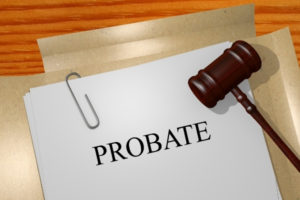Knowledgeable Long Island Probate Lawyer Ready To Serve You
Understanding Probate and Estate Administration

If someone you care about passed away in Long Island or the New York City area, I can guide you through probate and the entire estate administration process as your Long Island probate lawyer. Whether you have been named as an Executor or beneficiary in a Will or your loved one did not have a Last Will & Testament, the process can be difficult and time-consuming.
The highly-skilled Long Island probate attorneys at the Law Office of Andrew M. Lamkin, P.C. can help you obtain an appointment as the Executor, settle debts, distribute assets, and explain all of your legal rights.
Probate is the process of legally establishing the validity of a Will in Surrogate’s Court. Where there is no will, the process is called Administration and can be much more difficult because the Court does not have the guidance of a Last Will & Testament, where the decedent stated their wishes. Therefore, an Administrator must distribute the assets according to New York intestacy laws. Hiring a skilled Long Island probate lawyer makes the process run much smoother.
At the Law Office of Andrew Lamkin, P.C., we understand how challenging this process can be for families, especially during such a difficult time. As a trusted Long Island probate attorney, Andrew Lamkin provides compassionate and strategic support to guide you through each step, ensuring the estate is handled correctly and complies with New York law. With our focus on efficiency and attention to detail, you can feel confident that the process will move forward as smoothly as possible while protecting your interests and those of your loved ones.
What Is Probate and Why Does It Matter?
Probate is the court-supervised process of administering a deceased person’s estate. This includes validating the will, paying debts, and distributing assets to beneficiaries, all under the supervision of the Surrogate’s Court. While it’s necessary for many estates, probate can be lengthy and costly. The average time for an estate to move through probate is nearly two years and can cost anywhere from 3-7% of the total estate value. The amount of work involved with the probate process underscores the importance of working with a skilled probate lawyer on Long Island.
Unique Aspects of New York Probate Law
Probate in New York has several unique features that distinguish it from other states. Some of these features include the following:
- Use of Surrogate’s Court to oversee probate matters. Each county in New York, including Nassau and Suffolk counties on Long Island, has its own Surrogate’s Court. Filing procedures, timelines, and local rules can vary slightly, making it essential to work with an attorney familiar with the courts in your area.
- Simplified process for small estates. New York also allows small estates valued at $50,000 or less (excluding real estate) to go through a simplified probate process known as voluntary administration. This option is faster and less costly than standard probate but is only available for qualifying estates.
- The elective share law. New York’s elective share law protects surviving spouses by ensuring they receive at least one-third of the estate, regardless of the terms of the will.
At the Law Office of Andrew M. Lamkin, P.C., we have extensive experience helping our clients through probate and handling the nuances of state law.
Basic Information You Need to Know
Executor or Administrator
Both of these terms refer to the person who is responsible for making payments of debts, paying taxes, and distributing assets to beneficiaries. If your loved one passed away with a will, you may have been named the executor. If there is no will, the Surrogate’s Court will assign an administrator (typically a close family member).
Estate Taxes
Taxes imposed on the estates of individuals at the time of their passing. The New York State limit is currently one million dollars, meaning every estate in excess of one million dollars must pay a tax. The executor is responsible for paying the tax out of the proceeds of the estate. The tax must be paid within nine months of the date of death of the individual. Therefore, it is important to begin work quickly. Reach out to our Long Island probate attorney to discuss your situation.
Letter of Testamentary or Letter of Administration
The document provided by the Surrogates Court in the County where the decedent lived. The document is a “certificate” which appoints an individual to be “executor” or “administrator” and allows that person to administer the estate, including conducting such functions as settling debts with creditors, paying estate taxes, selling assets, and distributing inheritance to the proper beneficiaries.
Real Property

This is simply another term for real estate. If the deceased owned property in multiple states, you will need to go through the probate process in each of those states (extending the entire process to be in excess of a year).
The probate and estate administration process can be complex and time-consuming. As a skillful probate lawyer in Long Island, I will help you understand the issues you need to deal with and complete the process as quickly and cost-effectively as possible.
Comprehensive Estate and Probate Services in Long Island
Handling the administration of estates, wills, and trusts can be overwhelming, especially during emotionally challenging times. Each case requires a tailored approach, as factors such as the size of the estate, the presence of disputes, and state-specific probate rules can significantly impact the timeline and outcomes. At the Law Office of Andrew Lamkin, P.C., we provide personalized legal guidance to help families manage estate and probate responsibilities efficiently and in compliance with New York law.
Probate Administration
Probate is the legal process of administering an estate after someone passes away, ensuring the payment of debts and distribution of assets according to the deceased’s wishes or state law if no will exists. As a dedicated Long Island probate lawyer, our firm assists executors with:
- Filing petitions in Surrogate’s Court,
- Resolving creditor claims, and
- Distributing assets to beneficiaries.
If disputes arise, such as challenges to the validity of a will, our probate attorneys can provide skilled representation to protect your rights. We understand probating an estate can feel overwhelming, but we are here for you every step of the way.
Estate Planning
Estate planning allows you to protect your assets and make clear decisions about their future distribution. Our probate lawyer works closely with clients to create comprehensive plans that include wills, trusts, healthcare proxies, and powers of attorney. These documents ensure your wishes are honored and provide financial and medical protections if you cannot make decisions for yourself. By taking a proactive approach, we help clients minimize estate taxes, avoid probate complications, and ensure their families are cared for in the long term.
Asset Protection
Protecting your assets from creditors, taxes, or legal claims is critical to estate planning. We help clients implement trusts, business structures, and joint ownership strategies to safeguard their wealth. These measures preserve your financial legacy and provide peace of mind that your assets will remain secure for future generations.
Wills
A will is a critical document that dictates how to distribute your assets after death. Attorney Lamkin helps clients create legally binding wills that reflect their wishes and comply with New York law, reducing the likelihood of disputes. For those dealing with contested wills, the firm represents executors and beneficiaries in cases involving:
- Claims of undue influence,
- Improper execution,
- Lack of capacity, and
- Duress or fraud.
A properly prepared will protects and ensures your loved ones avoid unnecessary complications during probate.
Trusts
Trusts are a powerful tool for managing assets and bypassing probate. They offer flexibility and security, making them essential to many estate plans. Our firm assists clients in creating different types of trusts, including:
- Revocable living trusts,
- Irrevocable trusts, and
- Special needs trusts.
These arrangements can reduce estate taxes, ensure privacy, and provide clear instructions for the management and distribution of assets. For trustees managing existing trusts, our team provides guidance to fulfill legal obligations while protecting the interests of beneficiaries.
Frequently Asked Questions (FAQ) Answers – Probate New York
How Much Does a New York Estate Have to Be Worth to Go to Probate?
In New York, an estate generally needs assets valued at $50,000 or more to require probate. Importantly, this threshold set by the Surrogate’s Court in New York does not apply to all assets. Generally, only assets held solely in the deceased’s name count toward probate assets. In other words, jointly owned property or assets with designated beneficiaries (e.g., life insurance policies or retirement accounts) are not included in that calculation. For example, jointly owned property, such as a house owned by spouses, will bypass the probate process and go directly to the surviving spouse or owner.
If the estate is valued under $50,000 in New York, it may still be subject to New York probate proceedings but through a process known as a small estate proceeding. When the decedent leaves no will, the estate is administered, not probated. Understanding these distinctions and what might apply in your situation can be complicated and complex. A seasoned probate lawyer can help answer your questions and assist you.
How Long Do You Have to File a Probate After Death in New York?
One of the most common questions is, How long do you have to file a probate after death in New York? Unlike other states, New York does not have a hard and fast official deadline to probate a will. However, it should be done as soon as possible.
A delay in filing for probate can create an array of problems, including:
- Delaying beneficiaries from receiving their inheritance,
- Unnecessary fees and expenses,
- Additional paperwork (e.g., affidavit explaining reason for delay) and
- The estate’s value may depreciate.
A delay in applying for probate can also inhibit creditors from seeking debt owed.
Is a Probate Lawyer the Same as an Estate Lawyer?
You may often hear the terms probate and estate lawyer used interchangeably, and while they both practice in similar areas of law, there are differences.
Probate lawyers handle the probate process after someone dies. In other words, they assist an executor or administrator in administering the estate. Often, a probate lawyer will serve their client in an advisory capacity and help oversee the process. Other times, these attorneys will need to take a more active role depending on the circumstances (i.e., whether there is a will, whether it is contested, guardianship, etc.)
An estate attorney often assists clients before their death. They help people plan their estates and affairs to ensure a smooth transition of assets after their death. An estate lawyer ensure their clients have documented their wishes to be precisely carried out after their death, including through wills, trusts, life estates, and will also advise their clients about possible inheritance taxes and costs and how that might affect their beneficiaries after death.
Typically, a New York estate lawyer will help living clients with estate planning, and probate lawyers handle conflicts that arise after someone’s death.
Speak with an Experienced Long Island Probate Lawyer Today

By addressing all aspects of probate, estate planning, and asset protection, the Law Office of Andrew Lamkin, P.C., ensures that your family’s future is secure. Whether you need assistance drafting a will, creating a trust, or managing probate, Andrew Lamkin provides compassionate, personalized guidance to help you make informed decisions.
Our Long Island probate attorney represents clients throughout New York and New Jersey and handles matters related to:
- Elder legal matters
- Estate planning matters
- Medicaid cases
- Trusts and wills matters
- Estate litigation cases
- Special needs matters
- Advanced directives
Contact the office today to schedule a consultation with a probate attorney on Long Island and take the first step toward protecting your loved ones and your legacy.
